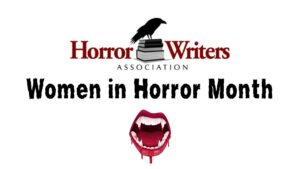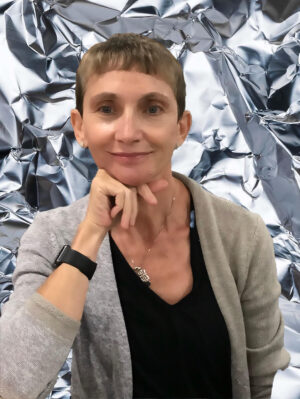
What inspired you to start writing?
I have been a storyteller since I remember myself. I was an only child and I spent most of my time immersed in books, making up my own stories to share with my toys. I always wanted to be a writer. However, once I left my birth country (Ukraine) and realized I needed to have a professional job, I decided to study English literature to improve my knowledge of the language. It worked out well for me as I became a Professor of English literature and wrote a number of academic books and articles. I still enjoy academic writing and am working on several projects in this area. But the bug of fiction writing never left me. The more I read other people’s books, the more I thought I could do the same. And then about 15 years ago I realized it was now or never. My first novel came out in 2012 (A Tale of Three Cities, the title a homage to Dickens who is the subject of my academic research). It is scheduled to be republished this year in a significantly revised edition. Since then, I have published six novels, several novellas, two collections, and more than a hundred stories. And every time I start a new project, I feel that I am doing it as a gift to that solitary little girl who told fantastic stories to her dolls.
What was it about the horror genre that drew you to it?
Horror is the most powerful of all literary genres. Life is hard for all of us. There are tragedies all around: violence, poverty, disease, bereavement. But the more we run away from bad things, the more power they have over us. In Shakespeare’s Tempest, Prospero says “This thing of darkness I acknowledge mine”. If you don’t look the thing of darkness squarely in the eyes, it will devour you. Horror is the magic mirror that enables us to confront and tame our fears.
Do you make a conscious effort to include female characters and themes in your writing and if so, what do you want to portray?
Almost all my protagonists are female. In my last two novels, Nightwood and Girl of Light, the protagonists are partly autobiographical: Ally is a Ukrainian immigrant to California and Svetlana lives in a nightmarish version of the USSR. But even in the novels where there is no direct connection to my own experience, my protagonists – Kora, Cleo, Mara – are women. It comes naturally to me simply because I cannot imagine anything that a male protagonist can do that a woman cannot do either. This is not a starry-eyed view of femininity. Women can be just as violent, dangerous, and evil as men. Svetlana is a pure idealist who, in her own way, is as monstrous as the monsters she battles. Feminism for me means showing that women are human beings with the full spectrum of human emotions, experiences, needs, and desires. I never portray women as helpless victims but always as agents capable of making their own decisions and taking responsibility for their mistakes and misdeeds.
What has writing horror taught you about the world and yourself?
Writing has clarified for me what I always knew: the world is a hard place but there is no fate, no destiny, no hidden pattern that forces us into good or evil. We make our own decisions and pay for them. For some people, this worldview may appear bleak. For me, it is exhilarating and liberating.
How have you seen the horror genre change over the years? And how do you think it will continue to evolve?
Horror is merging with fantasy and sci-fi, producing the hybrid and highly popular genres of dark fantasy and space horror or dark SF. For me, these are incredibly exciting and welcome developments. I only write dark fantasy, as I find horror without an imaginative element simply boring. Slashers don’t excite me (though I have published two academic books on serial killers). But imagination is what makes horror magical. So, I hope that dark fantasy, dark fairy tales, and space horror will continue to dominate the charts. Of course, the book market (and not just for horror) is in turmoil with AI and changes in publishing. But I am confident that the end result will be a third horror renaissance, after the blossoming of Gothic in the 19th century and the 1980s explosion of horror movies and paperbacks.
How do you feel women have been represented thus far in the genre and what hopes do you have for representation in the genre going forward?
Despite the fact that horror had two great foremothers – Ann Radcliffe, the inventor of the Gothic novel and Mary Shelley, the author of Frankenstein – for a long time it was considered a “masculine” genre. I think by now we are over this nonsense, but I would like to see even more women in horror. In particular, I would like to see more global female voices represented in the genre. I know amazing women horror writers in Italy, Scandinavia, Greece, Eastern Europe, Japan and other countries. American audiences need to be more receptive to non-Anglo- American settings and characters. Trust me: it will pay off, as being transported into a new and unfamiliar world is what speculative fiction, including horror, is all about.
Who are some of your favorite female characters in horror?
I love women characters who explore, solve mysteries, and confront the unknown. I just read two dark fantasy novels by the British writer Melanie Golding, Little Darlings and The Hidden, featuring a tough detective Joanna Harper who is also a mother estranged from her daughter. Themes of motherhood always speak to me. I have two sons and I was always very close to my own mother, a wonderful writer who unfortunately passed away too soon. The combination of a mother’s vulnerability and detective training in DS Harper really appealed to me. I am sure I can find many more examples of female characters with the same combination of traits. As long as the character is not a helpless victim, I will probably like her.
Who are some women who write horror you recommend our audience check out?
I already mentioned Melanie Golding. Another British author I warmly recommend is Alison Littlewood. Both these writers draw upon fairy tales to create stories that are creepy and magical at the same time. They show that horror does not have to go overboard with gore in order to be disturbing. And since I am a fan of international horror, here are some non-Anglo- American writers translated into English: Yrsa Sigurdardottir (Iceland), Siri Pettersen (Norway), Mariko Koike (Japan), and Yulia Yakovleva (Russia).
What is one piece of advice you would give horror authors today?
Don’t give up. It sounds trite but it is true. Sit down and write every day. Even if you doubt yourself. Even if you believe nobody is interested. Even if you feel discouraged or misunderstood. Write. Eventually, you will find your voice and your audience.
And to the women who write horror out there who are just getting started, what advice would you give them?
The same as men, of course, with one caveat. Women who are mothers are conditioned to be selfless, to give up things we love in order to sacrifice for our children. Don’t do it. Your children won’t benefit, and your life will be impoverished. My mother was a writer and intellectual, busy with her projects, and yet I never felt a lack of love and care when I was a child. I pursued an academic career when my kids were small. It was tough but I managed. Being a horror writer and a mother is not an impediment: it is an advantage.
 Born in Ukraine and currently residing in California, Elana Gomel is an academic, an award-winning writer, and a professional nomad. She is an authority on narrative theory and speculative fiction and has published widely in these areas. As a fiction writer, she is the author of more than a hundred stories, several novellas, and six novels of dark fantasy and science fiction. Her latest fiction publications are the dark fairy tale Nightwood (Silver Award in the Bookfest 2023 competition) and Girl of Light, a historical fantasy. Two more novels are scheduled to come out in 2024.
Born in Ukraine and currently residing in California, Elana Gomel is an academic, an award-winning writer, and a professional nomad. She is an authority on narrative theory and speculative fiction and has published widely in these areas. As a fiction writer, she is the author of more than a hundred stories, several novellas, and six novels of dark fantasy and science fiction. Her latest fiction publications are the dark fairy tale Nightwood (Silver Award in the Bookfest 2023 competition) and Girl of Light, a historical fantasy. Two more novels are scheduled to come out in 2024.
Check out her website for more.

